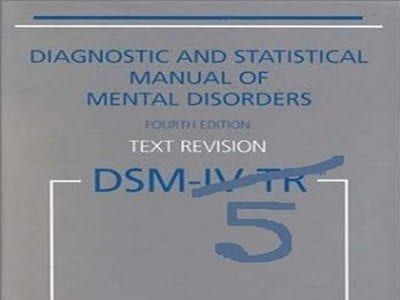Among the 500,000 mental health professionals in the US who will use the DSM 5, the 250,000 social workers (Center for Health Workforce Studies, 2006) comprise by far the largest group, followed by 120,000 mental health counselors (American Counseling Association, 2011), 93,000 psychologists (American Psychological Association, 2011), and 38,000 psychiatrists (American Psychiatric Association, 2011).
For many social workers, DSM is a daily companion having a dramatic impact on how they assess patients, make a diagnosis, and plan treatment. The American Psychiatric Association (APA) is the sole group that revises the DSM, despite the fact that psychiatrists account for only 7% of all mental health professionals and only 10% of all physicians who prescribe psychotropic medications.
 In the past, social workers and other mental health professionals have relied on APA and the DSM for guidance in the diagnosis process. And while previous DSMs have failed to achieve universal admiration, none has failed to achieve universal acceptance.
In the past, social workers and other mental health professionals have relied on APA and the DSM for guidance in the diagnosis process. And while previous DSMs have failed to achieve universal admiration, none has failed to achieve universal acceptance.
Certainly, there have been numerous controversies about the overall reliability of the system; its seeming tilt toward a biological approach; the relative lack of participation of professional groups other than psychiatry; and the inclusion and/or definition of particular mental disorders. But no one questioned whether DSM should be used at all or suggested that there was an alternative way forward.
DSM-5 has changed the landscape by being so closed in its process, flawed in its execution, unrealistically ambitious in its hopes, and dangerous in its product that many mental health professionals may choose not to use it.
The work on DSM-5 has been secretive, geared less to protecting the public trust than to generating publishing profits for the American Psychiatric Association (APA). Participants were forced to sign confidentiality agreements, the scientific review has been conducted behind closed doors, and APA rebuffed a petition endorsed by fifty-one professional organizations for an open and independent review of its suggestions.
Everything about DSM 5 was done in a disorganized way: constant missing deadlines, inconsistent methods for conducting literature reviews, poor research design for the field trials, and finally the cancellation of the crucial quality control step because time was running out (Frances, 2010, 2012; Jones, 2012). This process has not inspired confidence.
The DSM-5 product is frightening in its over-inclusiveness- with lowered diagnostic thresholds across a number of disorders and the addition of many new “subthreshold” disorders. The changes blur the boundaries between pathology and normal behavior, resulting in increased overall prevalence rates of mental disorders and many new false epidemics. Millions of normal people will be mislabeled as mentally ill and subjected to stigma and to unnecessary treatment and testing.
This will exacerbate what is already a serious problem in the United States – the medicalization of normal behavior. We are already in the midst of a national glut of excessive medication use causing harmful and unnecessary side effects and complications. What can social workers do if they don’t like the DSM-5 final product? Ignore it.
There is nothing official about DSM 5. There are no DSM 5 codes- all codes used for reimbursement are ICD-9-CM codes which are available for free on the internet. You can bypass DSM-5 altogether and instead use the readily available diagnostic codes of the International Classification of Diseases (ICD). You can also continue to use DSM-IV diagnostic codes until oct 2014 when they will be replaced by ICD-10-CM which will also be available for free.
DSM is not mandatory for clinicians unless specifically required by their institutional settings (First, 2010). In fact, the ICD is the only classification system approved by HIPAA (Department of Health and Human Services, 2009) – not the DSM classification. As such, ICD codes meet all insurer-mandated and HIPAA coding requirements.
My advice- don’t buy DSM 5, don’t use it, don’t teach it.
References
American Counseling Association (ACA). (2011). 2011 statistics on mental health professions. Alexandria, VA: Author.
American Psychiatric Association (APA). (2011). American Psychiatric Association. Retrieved from https://www.psych.org/
American Psychological Association (APA). (2012). Support center: How many practicing psychologists are there in the United States? Retrieved fromhttps://www.apa.org/support/
Center for Health Workforce Studies School of Public Health University at Albany. (2006). Licensed social workers in the United States, 2004. Available at https://workforce.
Department of Health and Human Services. (2009). HIPAA administrative simplification: Modifications to medical data code set standards to adopt ICD-10-CM and ICD-10-PCS. 45 CFR Part 162. Federal Register 74, no. 11 3328-62. Available at https://edocket.access.gpo.gov/
First, M. B. (2010). Clinical utility in the revision of the diagnostic and statistical manual of mental disorders (DSM). Professional Psychology: Research and Practice, 41, 465-473.
Frances, A. J. (2012, November 13). You can’t turn a sow’s ear into a silk purse. Psychiatric Times. Retrieved from https://www.psychiatrictimes.
Jones, K. D. (2012). A critique of the DSM-5 field trials. Journal of Nervous and Mental Disease, 200, 517-519.
Regier, D. (2012, April). DSM-5 Field Trials: Reliability of the Categorical Diagnoses. Presentation at the Annual Meeting of the American Psychiatric Association, Philadelphia, PA.



